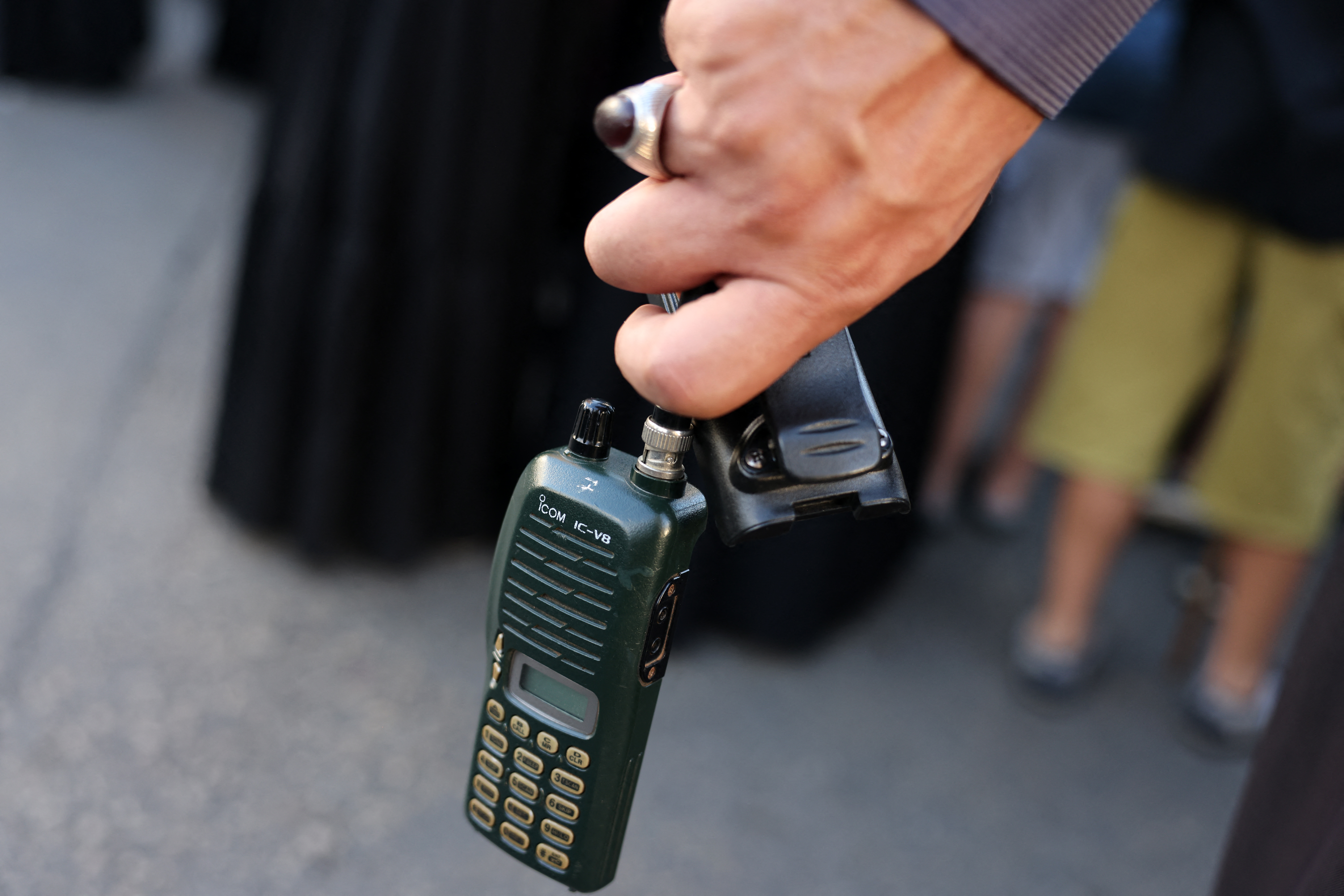Beirut – Hundreds of pagers and walkie-talkies used by Hezbollah exploded across Lebanon in unprecedented attacks this week, killing 37 people and wounding more than 2,900.
The blasts spanning two days have dealt a major blow to the Iran-backed resistance group, which blamed its arch-foe Israel for the attacks and vowed revenge.
Hezbollah leader Hassan Nasrallah addressed the nation on Thursday, with many expected to watch his speech closely for any clues about a response.
Here is what we know about the attacks.
On Tuesday, hundreds of pagers carried by Hezbollah operatives exploded at almost the same time in the group’s strongholds in south Beirut, south Lebanon, and the eastern Bekaa valley.
Those blasts killed at least 12 people, including two children, and wounded 2,323, Health Minister Firass Abiad said on Thursday, revising an earlier toll for the wounded.
A second wave of explosions, this time involving walkie-talkies, swept through areas controlled by Hezbollah on Wednesday, killing 25 people and wounding 608, according to the latest figures provided by Abiad.
Hezbollah announced the deaths of 25 of its members, with a source close to the group saying at least 20 had died when their walkie-talkies exploded.
AFPTV footage showed people running for cover when an explosion went off during a funeral in the afternoon for Hezbollah militants in south Beirut who were killed the day before in the pager blasts.
Hezbollah already had concerns about the security of its communications after losing several key commanders to Israeli strikes in recent months.
But the nature of the attacks has instilled a sense of panic, not just in Hezbollah strongholds but around Lebanon.
Israel has not commented on the attack.
Prior to the first wave of explosions, however, it announced it was expanding the aims of its war with the Palestinian militant group Hamas to include securing the northern front with Lebanon.
Following Hamas’s October 7 attack, Israel vowed to bring home scores of hostages taken by Palestinian militants and to crush Hamas.
Since October, Hamas ally Hezbollah has also traded almost daily fire with Israeli troops along the Lebanon-Israel border.
Not formally declared a war, the clashes on the Lebanon front have killed hundreds in Lebanon, mostly fighters, and dozens, including soldiers, on the Israeli side.
They have also forced tens of thousands of people on both sides to flee their homes.
Israeli Defence Minister Yoav Gallant said on Wednesday, in reference to his country’s northern border with Lebanon: “The center of gravity is moving northward.”
Part of the effectiveness of the attacks stems from their unusual nature, which saw Hezbollah’s own communication devices turned into weapons.
Analysts said explosives had likely been planted in the pagers before they were delivered to Hezbollah.
The preliminary findings of a Lebanese investigation found the pagers had been booby-trapped, a security official said.
“Data indicates the devices were pre-programmed to detonate and contained explosive materials planted next to the battery,” the official said, requesting anonymity to discuss sensitive matters.
A source close to Hezbollah, asking not to be identified, said the pagers were “recently imported” and appeared to have been “sabotaged at source”.
The New York Times reported Wednesday that the pagers that exploded were produced by the Hungary-based BAC Consulting on behalf of Taiwanese manufacturer Gold Apollo. It cited intelligence officers as saying BAC was part of an Israeli front.
A government spokesman in Budapest said the company was “a trading intermediary, with no manufacturing or operational site in Hungary”.
Japanese firm Icom said it had stopped producing the model of walkie-talkies reportedly used in Wednesday’s blasts in Lebanon around 10 years ago.
Some Israeli media outlets and experts said the pager attack bore the telltale signs of a job by Mossad, the spy agency famous for exploits like the early 1970s revenge killings of those behind the deaths of 11 Israeli athletes at the Munich Olympics.
John Hannah of the Jewish Institute for National Security of America described the pager attack as “another stunning display of Israeli intelligence prowess”.
Hannah said Mossad has demonstrated “a repeated ability not only to deeply penetrate its worst adversaries’ most sensitive networks but then execute operations of exquisite precision and lethality whenever it chooses to do so”.
The incident comes nearly a year after the October 7 attack, which dealt a heavy blow to the reputation of Israel’s intelligence services.








